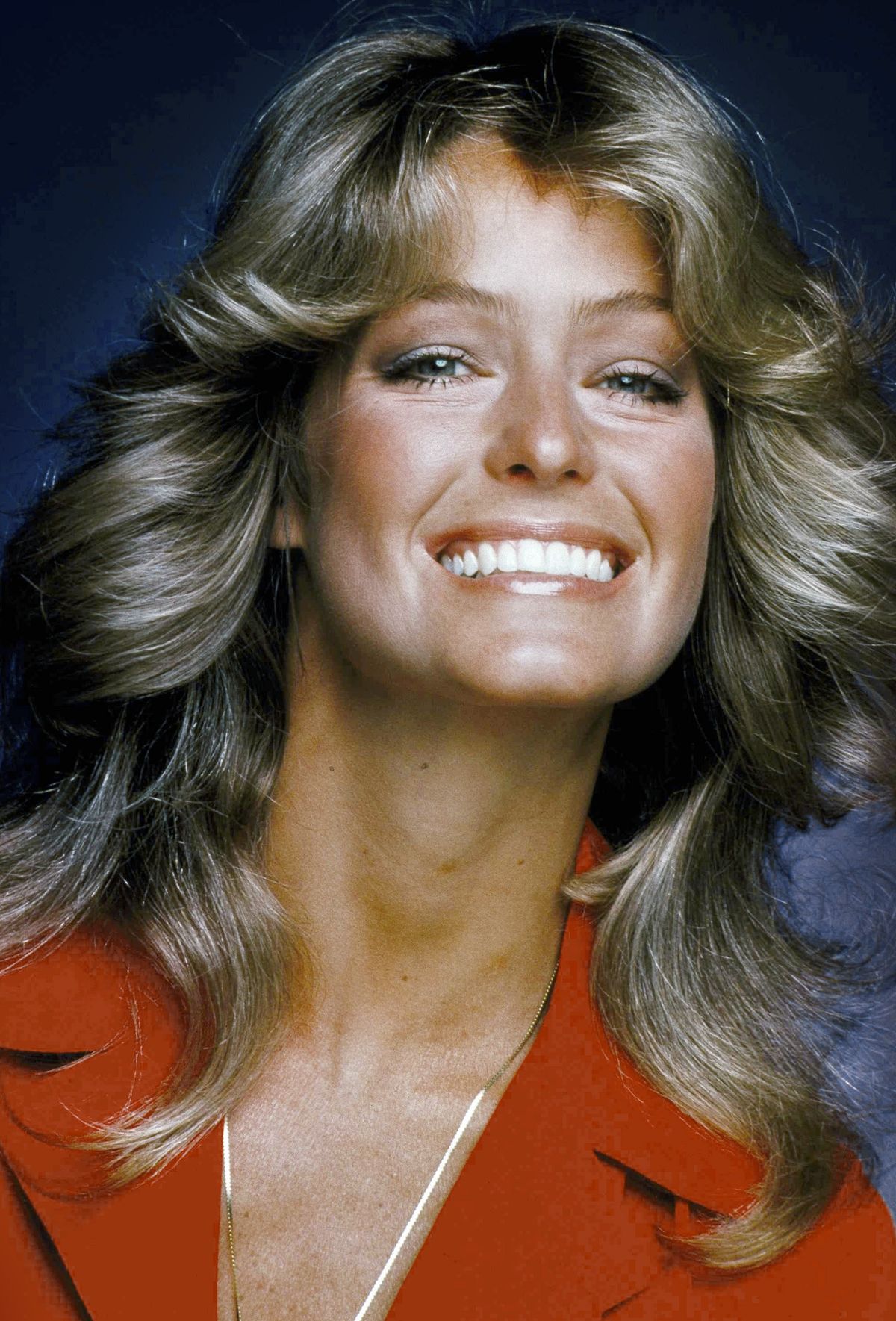At the end, a fighter’s role
Farrah Fawcett, dead at 62, sacrificed privacy to share her experience with cancer

LOS ANGELES – A wide smile, tousled hair and unfettered sensuality were Farrah Fawcett’s trademarks as a sex symbol and 1970s TV star in “Charlie’s Angels.”
As her life drew to a close, she captivated the public in a far different way: as a cancer patient who fought for, then surrendered, her treasured privacy to document her struggle with the disease and inspire others.
Fawcett, 62, died Thursday morning at St. John’s Health Center in Santa Monica, nearly three years after being diagnosed with anal cancer. Ryan O’Neal, the longtime companion who returned to her side when she became ill, was with her.
“After a long and brave battle with cancer, our beloved Farrah has passed away,” O’Neal said. “Although this is an extremely difficult time for her family and friends, we take comfort in the beautiful times that we shared with Farrah over the years and the knowledge that her life brought joy to so many people around the world.”
In the end, Fawcett sought to offer more than that, re-emerging in the spotlight with a new gravitas.
In “Farrah’s Story,” which aired last month, she made public her painful treatments and dispiriting setbacks – from shaving her golden locks before chemotherapy could claim them to undergoing experimental treatments in Germany.
“Her big message to people is don’t give up. No matter what they say to you, keep fighting,” Alana Stewart, who filmed Fawcett as she underwent treatment, said last month. NBC estimated the May 15, 2009, broadcast drew nearly 9 million viewers.
Fawcett became a sensation in 1976 as one-third of the crime-fighting trio in “Charlie’s Angels.” A poster of her in a clingy, red swimsuit sold in the millions and her full, layered hairstyle became all the rage.
She left the show after one season but had a flop on the big screen with “Somebody Killed Her Husband.” She turned to more serious roles in the 1980s and 1990s, winning praise playing an abused wife in “The Burning Bed.”
Born Feb. 2, 1947, in Corpus Christi, Texas, she was named Mary Farrah Leni Fawcett. As a student at the University of Texas at Austin, she was voted one of the 10 most beautiful people on the campus and her photos were eventually spotted by movie publicist David Mirisch, who suggested she pursue a film career.
She appeared in a string of commercials, including one where she shaved quarterback Joe Namath, and in such TV shows as “That Girl,” “The Flying Nun,” “I Dream of Jeannie” and “The Partridge Family.”
Fawcett, Kate Jackson and Jaclyn Smith made up the original “Angels,” the sexy, police-trained trio of martial arts experts who took their assignments from a rich, mysterious boss named Charlie.
The program debuted in September 1976, the height of what some critics derisively referred to as television’s “jiggle show” era, and it gave each of the actresses ample opportunity to show off their figures as they disguised themselves as hookers and strippers to solve crimes.
Fawcett – then billed as Farrah Fawcett-Majors because of her marriage to “The Six Million Dollar Man” star Lee Majors – quickly became the most popular Angel. Her face helped sell T-shirts, lunch boxes, shampoo, wigs and even a novelty plumbing device called Farrah’s faucet. Her flowing hair, pearly white smile and trim, shapely body made her a favorite.
The public and the show’s producer, Spelling-Goldberg, were shocked when she announced after the series’ first season that she was leaving television’s No. 5-rated series to star in feature films. (Cheryl Ladd became the new “Angel” on the series.)
After a short string of unsuccessful movies, Fawcett found critical success in the 1984 television movie “The Burning Bed,” which earned her an Emmy nomination.
As further proof of her acting credentials, Fawcett appeared off-Broadway in “Extremities,” playing a woman who seeks revenge against her attacker after being raped in her own home. She repeated the role in the 1986 film version.
Not content to continue playing victims, she switched type to take on roles as a murderous mother in the 1989 true-crime story “Small Sacrifices” and a tough lawyer on the trail of a thief in 1992’s “Criminal Behavior.”
In 1995, at age 50, Fawcett stirred controversy posing partly nude for Playboy magazine. The following year, she starred in a Playboy video, “All of Me,” in which she was equally unclothed while she sculpted and painted.
Fawcett’s most unfortunate career moment may have been a 1997 appearance on David Letterman’s show, when her disjointed, rambling answers led many to speculate that she was on drugs. She denied that, blaming her strange behavior on questionable advice from her mother to be playful and have a good time.
In September 2006, Fawcett, who at 59 maintained a strict regimen of tennis and paddleball, began to feel strangely exhausted. She underwent two weeks of tests that revealed the cancer. “I do not want to die of this disease. So I say to God, ‘It is seriously time for a miracle,’ ” she said in “Farrah’s Story.”
As she underwent treatment, she enlisted the help of O’Neal, the father of her now 24-year-old son, Redmond.
This month, O’Neal said he asked Fawcett to marry him and she agreed. They would wed “as soon as she can say yes,” he said, but it never happened.